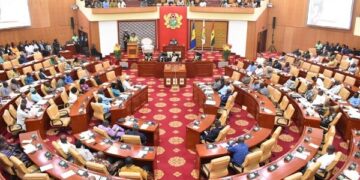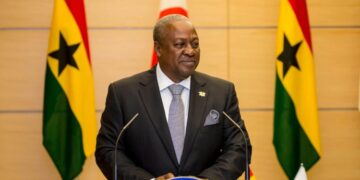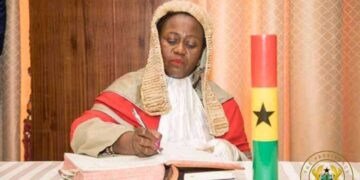Dr Festus Kofi Aubyn, a Peace and Security Analyst, has urged the 40 women Members of Parliament (MPs) of the Eighth Parliament of the Fourth Republic of Ghana to champion the agenda of women in the House.
He charged them to push laws, bills and regulations that promoted the interests and welfare of women for accelerated socioeconomic development.
Out of the 275 MPs, 40 are women, 20 for the New Patriotic Party (NPP) and 20 for the National Democratic Congress (NDC).
Speaking with Ghana News Agency in Accra, Dr Aubyn, noted that women constituted over 50 per cent of the nation’s population, out of which the women MPs were privileged to be chosen for the Eighth Parliament of the Fourth Republic of Ghana.
He noted that: “the women MPs should know that they are not there for their own interest, they are there for the interests of their constituents as well as their fellow women”.
“The numbers are small but I think if they are united, both from the opposition NDC and those from the governing NPP, I think they will do well to push for the interests of women in all the workings of Parliament and in all the legislations that are passed in Parliament.”
He asked them to ensure that the Affirmative Action Bill, which had been before the House for many years was passed into law in the life time of this Parliament.
“…You cannot do this alone so try and get some of the male parliamentarians on your side.”
Dr. Aubyn said though the number of female Parliamentarians had increased from 35 in 2016 to 40 in 2021 out of the 275 seats, the low representation of women in Parliament did not reflect Ghana’s commitment to international protocols, conventions and laws promoting the rights and interests of women in politics and in other sectors of society.
He suggested that to balance the gap created in the low number of women in the legislative arm of government, more women should be appointed in the executive arm of government as Ministers; Metropolitan, Municipal and District Chief Executives (MMDCEs).
Dr. Aubyn advocated that Ghana should go beyond the issue of 30 per cent representation of women to even 50 per cent; for more women to be represented at all decision making levels -the executive, the legislature, and the judiciary.
He said Ghana’s political system and certain cultural practices continued to discourage women from partisan politics and said such issues must be addressed.
“So, the electoral system itself is unfriendly when it comes to improving the participation of women in politics.
“Cultural norms, practices and discriminations have also over the years militated against women active participation in politics and the issue of patriarchy (that is male dominance of every sector of the society) has also not helped in terms of encouraging more women in the nature of the electoral politics in Ghana,” Dr. Aubyn noted.
He urged political parties, state institutions, civil society organisations to increase women’s participation in all spheres of life, because women had a major contribution to national development.
“In fact, without their participation in public discourse and decision-making, it will be very difficult for Ghana to achieve sustainable development.
“So, in whatever way that we can, the government and the political parties should strive to increase more women participation in decision-making bodies in the country,” Dr. Aubyn stressed.
Source: Mypublisher24.com






















































































